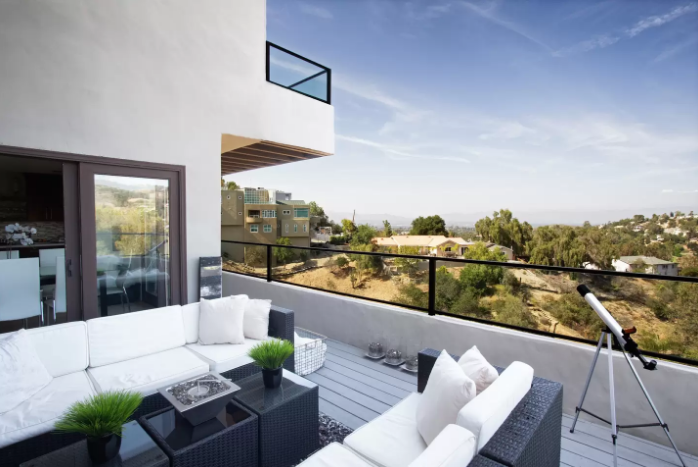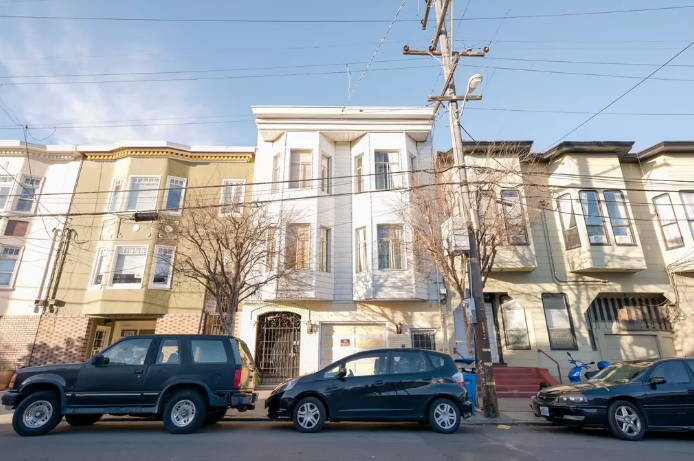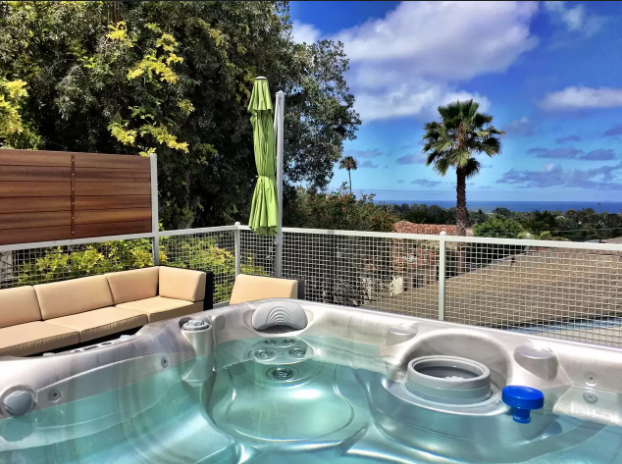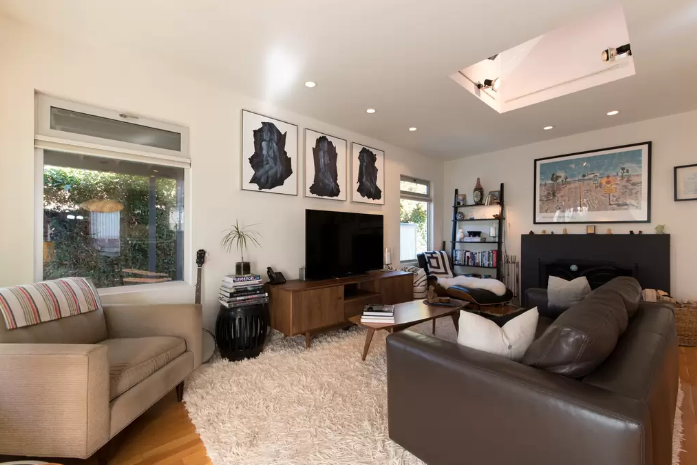Just like our current economy based on sharing allows just about anyone to become cab drivers through services like Uber, so too does this market allow regular homeowners to become veritable motel owners by using Airbnb.
This has fairly quickly disrupted the market, which has allowed for landlords to further diversify their various sources of income and even add some value to the assets they already have. The only thing is that with this new opportunity, local governments have started to limit the use of Airbnb by owners of property, and have even taken away some of the revenues generated from the visitors. This legislation and limitation is spearheaded mostly by hotel lobbyists, as well as other special interest groups.
Even so, it can still be very profitable for those who want to get involved in Airbnb to start making some money off of the service in the state of California. Even if you don't live in one of the cities that we're going to list, these regulations, can serve as a barometer as to how your revenue will be affected should your representatives implement a similar strategy. Also, Airbnb isn't responsible for making sure that the property is being used legally, that's up to the property owner to ensure themselves.
Things to Consider
The first question you should be asking yourself is if Airbnb is truly right for you. This is because the service is more time consuming than managing an apartment, there are some risks involved, it'll lead to some wear on your home, you have the potential for some bad renters and other things. It all comes down to analyzing the benefits and negatives involved.
It's also important to check if your HOA limitations actually allow for you to use your condo as some sort of rental. Keep in mind, violations of these rules can end up being both costly and time-consuming.
There are some costs involved. Using Airbnb means that you need to make sure your unit is furnished and clean for every renter you have. You're also going to have to consider things like bed tax, which is collected directly on the website itself. You might be able to transfer the costs of this tax to your renter, but it's still a costly process.
It's going to affect your property's value, because your building's value is related in a direct way to the overall income that it produces in the long term. While Airbnb can increase this income substantially, it won't be considered real income. If you're looking to apply for a refinance, most banks won't think of your renting business as stable. If you're trying to sell this property, it'll be difficult for you to convince investors to depend on Airbnb.
The laws in California differ by city, but following the changes in the law will reduce your overall liability.
Los Angeles Airbnb Regulations

Los Angeles actually doesn't have specific laws for the use of Airbnb. The official site for Airbnb has provided some guidelines to help in this process.
You'll first need a business license, and LA does impose a bed tax, which is imposed on a daily basis. According to the law of this tax, a hotel is defined as a structure in the county's unincorporated area that's intended to be used by a guest. This includes just about any kind of structure that you could think of, like motels, hotels, houses and the like.
Since the definition is broad, there's a good chance your property falls under this law. Payment is to be 12% of the rent, and an exception the bed tax is if this is a California or even federal employee who's on official business.
This also applies to foreign government officials. There's no bed tax on places that are rented by month, and LA also has what's called a transient tax requirement. The city requires you to make payment every month to the Office of Finance.
There has been some talk of upcoming Airbnb laws that will further shake up the situation in Los Angeles.
San Francisco Airbnb Regulations

San Francisco has led the charge in regards to Airbnb laws. Beginning in 2015, all owners who rent space need to follow the guidelines.
Owners who want to use a short term rental need to be San Francisco residents with a multi-family that has at least two units. If you're not at the unit, you can only rent it for ninety days per year. If you rent short term while living there, you have no limit on the days you can rent.
It's important to note that you can only register one unit, you have to register units for any short rentals in the city, you have to get a business license directly from the Treasurer as well as the Tax Collector Service, you have to get liability insurance valued at at least $500,000 or more, you can't have any violations of the city code, you have to pay a $50 fee for the application, present a signed affidavit that shows that you agree to the laws and regulations in regards to all of the ordinances involved, your residency proof, you should note that single family homes aren't actually covered by any of the ordinances, there's a cap on the amount that you can request in rent if your unit is under what's known as rent control, you have to pay the transient occupancy tax which is 14% in the city of San Francisco, and lastly you have to give the application in person with the department that it's supposed to go to.
As we said before, San Francisco spearheads most Airbnb laws, and there's a good chance that other cities' codes will look much like this should they get on board and start to regulate Airbnb.
San Diego Airbnb Regulations

In the year 2015, San Diego issued a memo to owners of property using Airbnb. The memo had plenty of information regarding the taxes involved, the Tourism Marketing District's assessment, and also the Rental Unit Business Tax, all in relation to short term renting opportunities.
To this end, the city started to levy fines against Airbnb landlords, they demanded back taxes, and even sent notices over to people who had violated this code. City council hasn't set any permanent rules for Airbnb and its short term renting opportunities, but its memo does lay the foundation for owners of property who use Airbnb. Among these is the requirement to pay the city's transient occupancy tax, which will ultimately be provided to the city, collect the rental unit business tax, which must be registered with the city before it can be leased in the short term, and a completed application that can be sent directly to the city to complete the overall process. When you actually apply you'll be given a business number that the office of the treasurer will provide you with. You should note that the tax is 10.50% for any lodging businesses, but it might be a little bit more if your assessment is either type A or B.
The official website for Airbnb has more legal requirements, but it isn't very extensive. In this memo that was put out by the city, it's actually noted that San Diego has an extensive history of short term rentals that are operated by management companies. It has more of a tolerance for short term rentals when compared to other cities. Also, instead of limiting Airbnb outright, the city used more of an educated approach for the issue, by sending out reminders, conducting webinars for renters, and some other outreach of the educational variety.
Santa Monica Airbnb Regulations

The Santa Monica City Council debated short term rental terms within the city, and they actually supported a complete ban on using Airbnb within the city while the owner of the property isn't there. Owners who might want to rent out a spare room while living in the unit should note that this is possible.
Santa Monica joins the other cities listed here by having a business tax, as well as a transient tax requirement that owners have to comply with. But if the law passes and is actually enforced, property owners within Santa Monica will not be able to lease units on a short term basis.
There are a few alternative solutions to this problem, though. Among these are that you can use Airbnb to rent out any back units, basements, or spare rooms that you might have so long as the unit isn't actually empty, and then you can lease it on a short term basis. You can also use Airbnb for rentals on a monthly basis, but it's important to note that the transient tax ordinances are only relevant to a rental that's ultimately shorter than thirty days.
In general, Airbnb is a particularly smart way for those who have a vacation rental, as well as landlords to make an additional source of income, as well as diversify their particular portfolio. The only thing is that cities in the state of California are taking some pretty big steps to regulate this opportunity for wealth.
While it can be a particularly good way of expanding the revenue sources that you have, it's important to note the regulations involved in your vacation rental so that you can maximize your profits and avoid some pesky regulations that can limit your opportunities. It's also important to note that these regulations are of course subject to change in the future, so it's best to keep an eye on the latest laws and codes in your particular city to keep up on this rapidly expanding business opportunity. We hope this helped you to make an informed decision.
.png?width=1000&height=627&name=air+concierge-logo-black+(1).png)
